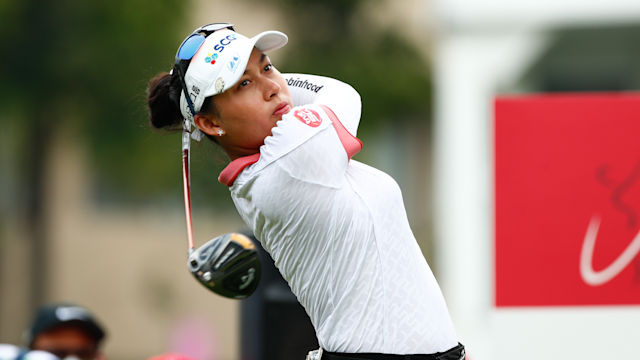quick coaching
Preparing to Play 36 Holes in One Day
By Vinnie Manginelli, PGA
Published on

Have you ever walked off the 18th green and thought to yourself - “I think I’ll keep going.” Or have you made it deep into your club championship and found yourself slated for double duty that could amount to almost ten hours of golf in one day?
In either case, your golf skills and technical preparation can only take you so far. Preparing your body with proper hydration and nutrition will be vital to maximizing physical performance, not to mention keeping your mental game sharp when you need it most.
“Nothing is going to help an athlete more than hydration and nutrition on the golf course,” says Ryan Harmon, a board-certified dietitian in Florida. After all, poor energy levels affect strength, stamina and focus, opening the door to a plethora of potential mistakes. Energy deficiency can also lead to jitters, shakiness and a focus placed on your hunger, rather than performance. When it comes to competitive golfers, you’ve already put the time and effort into your golf skills. So, the differentiating factor can often be how prepared your body is for that day.
“Fueling starts early, especially hydration,” Harmon advises. “You don’t want to be playing catch-up once you arrive on the course. Drinking water is generally best, and sixteen ounces upon waking is a good start.” Harmon advises her athletes to put a bottle of water near their bed before going to sleep so it’s right there when they wake up. During a round, there are many factors that might dictate how frequently you drink, but Harmon says you should generally drink 5-8 ounces of fluid every 15 minutes - essentially every hole or two.
“Golfers can get their fluid from water and their electrolytes from snacks. But, if they are a salty sweater or it’s extremely humid and we’re going to see higher sweat rates, then I would probably add an electrolyte packet to the bottle of water,” Harmon explained. Electrolytes, to be clear, are the sodium, potassium, magnesium and calcium (among other nutrients) lost in sweat.
Let’s face it - 36 holes is a daunting task. Sure, golf is fun, but competitive golf for that sustained period of time can be draining. What you eat also makes a huge impact on your readiness and ability to perform.
You want a pre-round meal that is high in protein, as protein is important for satiety. Then you want a low glycemic index (GI) carbohydrate - one that is high in fiber that will slowly increase blood glucose and keep it stable. That’s when we see our best performance.
On the course, golfers should eat every three or four holes. The snack choices may differ based on personal preference, but there should be two things in the snack - a lean protein source and a low GI carbohydrate, like fruits or vegetables. The lean protein takes a long time to digest, satisfying your hunger, and the fiber in produce will maintain your energy levels by keeping blood glucose stable. Protein is for satiety, and carbs are your fuel. Both are a vital part of preparing your body for 36 holes of golf, and maintaining your energy levels to play your best for that long period of time.


